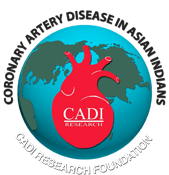Coffee
- Coffee is the leading worldwide beverage after water and its trade exceeds $10 billion worldwide.1
- Many research investigations, epidemiological studies, and meta-analyses regarding coffee consumption revealed its inverse correlation with that of diabetes, various cancer lines, parkinsonism, and Alzheimer’s disease. 1-3 However, some researchers have suggested an association of coffee consumption with cardiovascular disease (CVD) and cancer.1
- The health-promoting properties of coffee are often attributed to its rich phytochemistry, including caffeine, chlorogenic acid, caffeic acid, hydroxyhydroquinone (HHQ), etc. 1
- Epidemiological studies on CVD outcome show contradictory results with some studies showing minor benefits, no benefits, or increased risk from coffee consumption.2, 4-8 However, heavy consumption of unfiltered coffee can raise serum cholesterol (by 12-16mg) and lead to heart attack, stroke, insomnia, and palpitation.9-12
- A large Norwegian study (n=26,755) found that the daily consumption of 5-6 cups of coffee was associated with a 33% decrease in the risk of blood clots.13
- An array of evidence showed that pregnant women or those with postmenopausal problems should avoid excessive consumption of coffee because of its interference with oral contraceptives or postmenopausal hormones.1
Tea
- There is increasing evidence for a protective effect of tea consumption against CVD including reduced silent heart disease (coronary artery calcification).14 The overall data suggest a benefit, but it is uncertain whether the benefit is due to other favorable lifestyle factors among the tea consumers.15
- Green and black teas are the two main types of tea, both of which are rich dietary sources of flavonoids.16 The cardiovascular health benefits of drinking tea are thought to be largely due to flavonoids.
- There is also evidence, although limited, to suggest benefits of green tea (flavonoids) on body weight and body fatness.17, 18
- Tea is consumed without milk in most of Asia and the US but with milk and sugar in India and UK. Black tea is a valuable source of antioxidants, but the antioxidant effect is drastically reduced by adding milk.19
- Similar to coffee, long-term consumption of tea has a protective effect on diabetes although one study showed a 64% higher risk with oolong tea.20, 21
- The weight of evidence indicates favorable effects on risk factors. It remains uncertain whether tea consumption should be recommended to the general population or to patients as a strategy to reduce cardiovascular risk.15
Sources
1. Butt MS, Sultan MT. Coffee and its consumption: benefits and risks. Crit Rev Food Sci Nutr. Apr 2011;51(4):363-373.
2. Kempf K, Martin S. [Coffee and diabetes]. Med Klin (Munich). Dec 2010;105(12):910-915.
3. Boggs DA, Rosenberg L, Ruiz-Narvaez EA, Palmer JR. Coffee, tea, and alcohol intake in relation to risk of type 2 diabetes in African American women. Am J Clin Nutr. Oct 2010;92(4):960-966.
4. Lopez-Garcia E, Rodriguez-Artalejo F, Li TY, Mukamal KJ, Hu FB, van Dam RM. Coffee consumption and mortality in women with cardiovasculardisease. Am J Clin Nutr. Jul 2011;94(1):218-224.
5. Larsson SC, Virtamo J, Wolk A. Coffee consumption and risk of stroke in women. Stroke. Apr 2011;42(4):908-912.
6. Mineharu Y, Koizumi A, Wada Y, et al. Coffee, green tea, black tea and oolong tea consumption and risk of mortality from cardiovascular disease in Japanese men and women. J Epidemiol Community Health. Mar 2011;65(3):230-240.
7. de Koning Gans JM, Uiterwaal CS, van der Schouw YT, et al. Tea and coffee consumption and cardiovascular morbidity and mortality. Arterioscler Thromb Vasc Biol. Aug 2010;30(8):1665-1671.
8. Sugiyama K, Kuriyama S, Akhter M, et al. Coffee consumption and mortality due to all causes, cardiovascular disease, and cancer in Japanese women. J Nutr. May 2010;140(5):1007-1013.
9. Rodrigues IM, Klein LC. Boiled or filtered coffee? Effects of coffee and caffeine on cholesterol, fibrinogen and C-reactive protein. Toxicol Rev. 2006;25(1):55-69.
10. Jansen DF, Nedeljkovic S, Feskens EJ, et al. Coffee consumption, alcohol use, and cigarette smoking as determinants of serum total and HDL cholesterol in two Serbian cohorts of the Seven Countries Study. Arterioscler Thromb Vasc Biol. Nov 1995;15(11):1793-1797.
11. Curb JD, Reed DM, Kautz JA, Yano K. Coffee, caffeine, and serum cholesterol in Japanese men in Hawaii. Am J Epidemiol. Apr 1986;123(4):648-655.
12. Williams PT, Wood PD, Vranizan KM, Albers JJ, Garay SC, Taylor CB. Coffee intake and elevated cholesterol and apolipoprotein B levels in men. JAMA. Mar 8 1985;253(10):1407-1411.
13. Enga KF, Braekkan SK, Hansen-Krone IJ, Wilsgaard T, Hansen JB. Coffee consumption and the risk of venous thromboembolism – The Tromso study. J Thromb Haemost. May 19 2011.
14. Reis JP, Loria CM, Steffen LM, et al. Coffee, decaffeinated coffee, caffeine, and tea consumption in young adulthood and atherosclerosis later in life: the CARDIA study. Arteriosclerosis, thrombosis, and vascular biology. Oct 2010;30(10):2059-2066.
15. Deka A, Vita JA. Tea and cardiovascular disease. Pharmacol Res. Apr 6 2011.
16. Hodgson JM, Croft KD. Tea flavonoids and cardiovascular health. Mol Aspects Med. Dec 2010;31(6):495-502.
17. Zheng G, Sayama K, Okubo T, Juneja LR, Oguni I. Anti-obesity effects of three major components of green tea, catechins, caffeine and theanine, in mice. In Vivo. Jan-Feb 2004;18(1):55-62.
18. Murase T, Nagasawa A, Suzuki J, Hase T, Tokimitsu I. Beneficial effects of tea catechins on diet-induced obesity: stimulation of lipid catabolism in the liver. Int J Obes Relat Metab Disord. Nov 2002;26(11):1459-1464.
19. Ryan L, Petit S. Addition of whole, semiskimmed, and skimmed bovine milk reduces the total antioxidant capacity of black tea. Nutr Res. Jan 2010;30(1):14-20.
20. Hayashino Y, Fukuhara S, Okamura T, Tanaka T, Ueshima H. High oolong tea consumption predicts future risk of diabetes among Japanese male workers: a prospective cohort study. Diabet Med. Jul 2011;28(7):805-810.
21. Huxley R, Lee CM, Barzi F, et al. Coffee, decaffeinated coffee, and tea consumption in relation to incident type 2 diabetes mellitus: a systematic review with meta-analysis. Arch Intern Med. Dec 14 2009;169(22):2053-2063.

